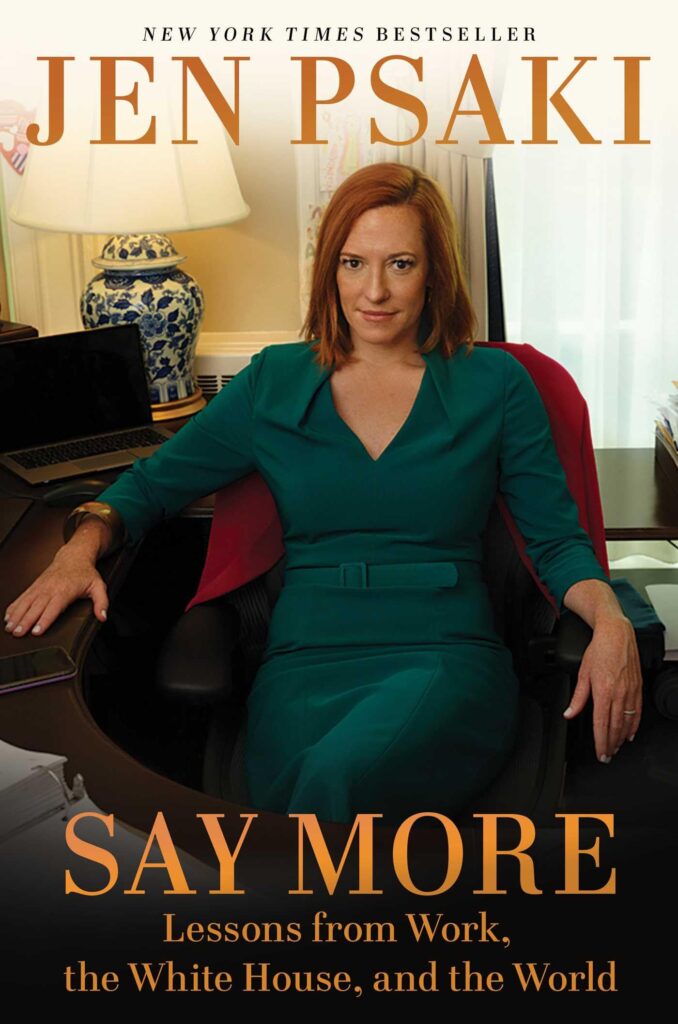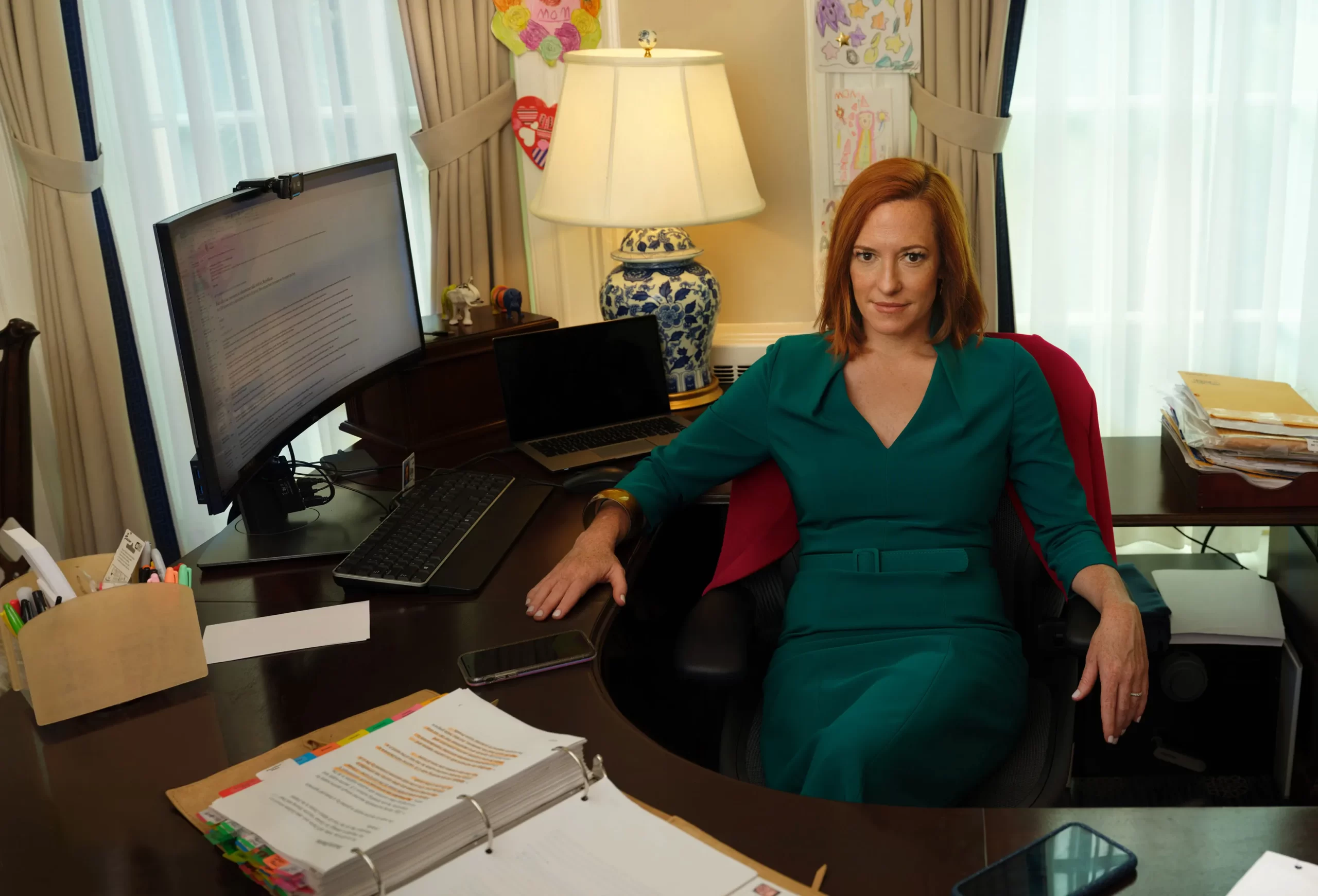As new White House press secretary, Karoline Leavitt, hits the ground running in her new role (messaging an unexpected freeze of federal funds in your first press conference couldn’t have been easy), we thought of the lessons we learned from Jen Psaki in her book, Say More: Lessons from Work, the White House, and the World. As the former press secretary for the Biden administration and deputy press secretary for the Obama administration, Psaki is no stranger to what Leavitt faced as she made her debut in the briefing room and began the balancing act of managing one thing after another. Here are some of our favorite quotes from the book and the ways they remind us to be better communicators, which can be great guidance to Leavitt in this new chapter of her career.

“What all great communicators have in common is their ability to make people feel heard.”
We are in the business of communicating – and must remember that listening is equally, if not more, important than talking. “When you’re actively listening, you’re not just receiving information; you’re saying something even when you’re not speaking. Listening skills will help you in pretty much every relationship,” wrote Psaki. At Teak Media, we start our relationship with a new client asking a list of questions to help us understand them more. The answers are so important to our work, that we truly need to take everything in as the client responds. This doesn’t stop after the first conversation – we continue to listen and understand client needs throughout our work to make sure we are meeting their needs.
It is crucial for those you are speaking with to truly feel like you care about what they are saying. Showing empathy, appreciation, and respect for those you are having a conversation with goes a long way. “Once you learn to listen and be in the moment, the people you’re communicating with will begin to say more,” wrote Psaki. At Teak Media, we often ask those our clients serve (our clients’ clients) to entrust us with their stories. Listening skills and truly being empathetic are crucial when speaking with someone who has been through challenges, or is receiving support, medical attention, or feels vulnerable in any way.
“Effective communication is about cracking the door open to learn more.”
As communicators, we need to be aware of ensuring the information we are sharing is accessible to as many people as possible. “Whenever possible, lower the barriers to engagement,” wrote Psaki. (Was Leavitt taking this advice literally when she assured audiences that there would be room for many, including new content creators, at White House press conferences, which had been previously inclusive of only the most respected and highly credentialed journalists?)
In our work, we make sure we aren’t using jargon, acronyms, or terminology that makes it hard for people to understand what we are saying. Clients often look to us to adjust the technical language they use in their industry about scientific research, renewable energy, and more to make it understandable for all audiences. “Successful communication is sometimes about building a bridge where there wasn’t one before,” wrote Psaki.
“One of the best ways to combat disinformation is to mine the inevitable gaps between fact and fantasy.”
Leavitt may have her work cut out for her on this one. To Psaki, this meant she had to put in the effort to truly understand what you are communicating about. For us, this can mean doing extra reading on the topic, watching videos, and interviewing experts. “Even when you are limited in what you are able to say publicly, it’s important to know the full scope of an issue or a debate,” wrote Psaki. This is especially true when doing crisis communication work. As the one sharing the information publicly, you need to have a full picture of what is happening so you can make informed decisions. Leavitt was quick to use a publicist’s standard response, “I’ll get back to you on that,” when she was faced with a media question for which she did not have the answer in her maiden press conference. There is no shame in that; it’s often the wisest response possible.
You should also work to better understand your audience and those with whom you are speaking. “Learning to both tolerate and overcome discomfort is necessary for any deep, meaningful relationship,” wrote Psaki. While highly heated in our polarized society, disagreement is part of who we are as humans and learning to have a civil conversation on uncommon ground can really improve our ability to empathize with, and recognize those, who are different from us.
Jen Psaki covers so much more in her book, which we highly recommend, but to boil it down – there is always room to improve your communication skills and become a more empathetic, informed, and intentional conversationalist. We wish Leavitt the best of luck in her new position.


